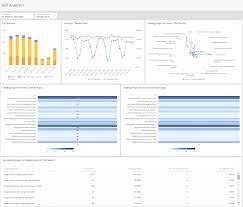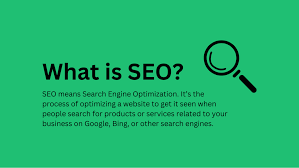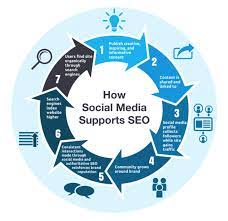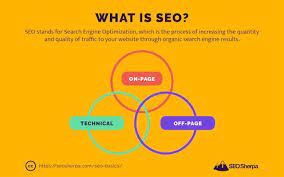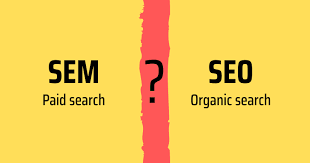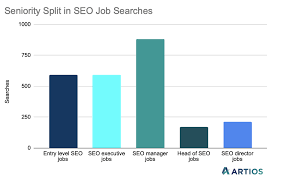Unlocking the Power of Analytics in SEO Strategies
The Power of Analytics in SEO
Search Engine Optimization (SEO) is a crucial component of any successful digital marketing strategy. However, implementing SEO tactics without the use of analytics is like navigating a ship without a compass. Analytics play a pivotal role in understanding the performance of your SEO efforts and making informed decisions to drive results.
Understanding User Behaviour
Analytics tools provide valuable insights into user behaviour on your website. By analysing metrics such as bounce rate, time on page, and pages per session, you can gain a deeper understanding of how visitors interact with your site. This data allows you to identify areas for improvement and tailor your SEO strategy to better meet the needs of your target audience.
Tracking Keyword Performance
Keywords are the foundation of SEO, and analytics tools enable you to track the performance of your chosen keywords. By monitoring metrics such as organic traffic, keyword rankings, and click-through rates, you can identify high-performing keywords and optimise your content around them. This data-driven approach ensures that you are targeting the right keywords to attract relevant traffic to your site.
Measuring ROI
Analytics tools allow you to measure the return on investment (ROI) of your SEO efforts. By tracking key metrics such as conversion rates, goal completions, and revenue generated from organic search, you can assess the effectiveness of your SEO campaigns. This data empowers you to allocate resources more efficiently and focus on strategies that deliver tangible results for your business.
Optimising Content Strategy
Content is king in the world of SEO, and analytics provide valuable insights into the performance of your content strategy. By analysing engagement metrics such as page views, social shares, and dwell time, you can identify top-performing content and replicate its success. Analytics also help you understand which types of content resonate with your audience, allowing you to create more targeted and impactful content moving forward.
Conclusion
In conclusion, analytics are an indispensable tool for maximising the effectiveness of your SEO efforts. By leveraging data-driven insights, you can refine your strategy, track progress towards your goals, and ultimately drive meaningful results for your business. Incorporating analytics into your SEO workflow is essential for staying ahead in the ever-evolving digital landscape.
Top 8 Essential Tips for Enhancing SEO Through Analytics
- 1. Conduct keyword research to identify relevant and high-performing keywords for your website.
- 2. Regularly monitor your website’s performance using analytics tools like Google Analytics.
- 3. Optimise your website’s meta tags, headings, and content with targeted keywords to improve SEO.
- 4. Create high-quality content that is valuable to your target audience and encourages engagement.
- 5. Build backlinks from reputable websites to increase your site’s authority and credibility.
- 6. Improve website speed and user experience to enhance SEO rankings.
- 7. Utilise social media platforms to promote your content and drive traffic to your website.
- 8. Stay updated on SEO trends and algorithm changes to adapt your strategy accordingly.
1. Conduct keyword research to identify relevant and high-performing keywords for your website.
Conducting thorough keyword research is a fundamental step in any successful SEO strategy. By identifying relevant and high-performing keywords for your website, you can ensure that your content is optimised to attract the right audience. Understanding the search terms that users are using allows you to tailor your content to meet their needs effectively. By incorporating these keywords strategically throughout your website, you can improve your search engine rankings and drive organic traffic to your site. Keyword research forms the backbone of an effective SEO campaign, providing valuable insights that shape your content strategy and enhance your online visibility.
2. Regularly monitor your website’s performance using analytics tools like Google Analytics.
Regularly monitoring your website’s performance using analytics tools like Google Analytics is essential for maintaining a successful SEO strategy. By tracking key metrics such as traffic sources, user behaviour, and conversion rates, you can gain valuable insights into how your website is performing and identify areas for improvement. This data-driven approach allows you to make informed decisions, optimise your content and marketing efforts, and ultimately enhance the overall effectiveness of your SEO campaigns. Consistent monitoring and analysis of website performance are vital steps in ensuring that your online presence continues to attract and engage your target audience effectively.
3. Optimise your website’s meta tags, headings, and content with targeted keywords to improve SEO.
To enhance your website’s search engine optimisation (SEO) performance, it is crucial to optimise key elements such as meta tags, headings, and content with relevant keywords. By strategically incorporating targeted keywords into these areas, you can improve the visibility and relevance of your site to search engines. Meta tags provide brief descriptions of your webpage, while headings structure your content for both users and search engines. Ensuring that these elements are aligned with your chosen keywords not only boosts SEO but also enhances the overall user experience by delivering more informative and cohesive content.
4. Create high-quality content that is valuable to your target audience and encourages engagement.
Creating high-quality content that provides value to your target audience and encourages engagement is a fundamental tip in analytics SEO. By crafting content that is informative, relevant, and engaging, you not only attract visitors to your website but also keep them interested and involved. Valuable content not only helps improve your search engine rankings but also builds trust with your audience, leading to increased brand loyalty and conversions. By focusing on creating content that resonates with your target audience, you can drive organic traffic, enhance user experience, and ultimately achieve success in your SEO efforts.
5. Build backlinks from reputable websites to increase your site’s authority and credibility.
Building backlinks from reputable websites is a fundamental strategy in SEO analytics. By securing links from trusted sources, you not only enhance your site’s authority but also establish credibility in the eyes of search engines. Backlinks act as endorsements for your content, signalling to search algorithms that your website is a reliable and valuable resource. This boost in authority can significantly improve your site’s visibility and ranking in search results, making it an essential tactic for driving organic traffic and strengthening your online presence.
6. Improve website speed and user experience to enhance SEO rankings.
Improving website speed and enhancing user experience are crucial steps in boosting SEO rankings. A fast-loading website not only provides a better user experience but also aligns with search engine algorithms that prioritise user-friendly sites. By optimising website speed, you can reduce bounce rates, increase engagement, and ultimately improve your site’s visibility in search engine results pages. Prioritising user experience through responsive design and streamlined navigation not only benefits visitors but also signals to search engines that your site is valuable and relevant to users’ queries. By focusing on these aspects, you can positively impact your SEO rankings and drive organic traffic to your website.
7. Utilise social media platforms to promote your content and drive traffic to your website.
To maximise the impact of your SEO efforts, consider leveraging social media platforms as a powerful tool to promote your content and increase website traffic. By sharing valuable and engaging content on platforms such as Facebook, Twitter, and Instagram, you can reach a wider audience and drive more users to your website. Engaging with followers, participating in relevant discussions, and utilising targeted ads can further enhance the visibility of your content and attract potential customers. Integrating social media promotion into your SEO strategy can help boost brand awareness, improve organic reach, and ultimately contribute to the success of your digital marketing campaigns.
8. Stay updated on SEO trends and algorithm changes to adapt your strategy accordingly.
It is essential to stay updated on SEO trends and algorithm changes to adapt your strategy accordingly. Search engine algorithms are constantly evolving, and keeping abreast of the latest developments ensures that your SEO efforts remain effective. By staying informed about industry trends and algorithm updates, you can make timely adjustments to your strategy, optimise your website for better visibility, and maintain a competitive edge in the ever-changing digital landscape. Consistent monitoring and adaptation based on current SEO practices will help you stay ahead of the curve and drive sustainable growth for your online presence.
